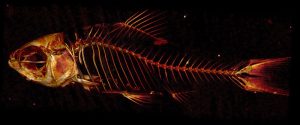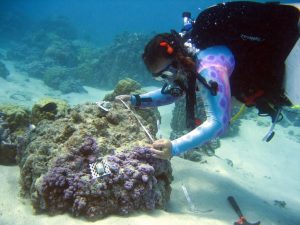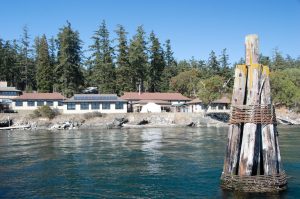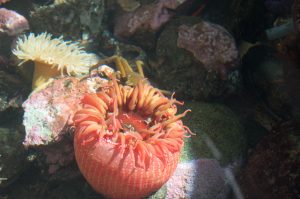[Tide Bites] Scanning All Fish!

This article comes from “Tide Bites”, the monthly newsletter of UW Friday Harbor Laboratories. “Scanning All Fish!”, by Adam Summers, with Kory Evans-Jackson and Malorie Hayes: read the full article at the FHL website.
Recently, FHL became home to the Karel F. Liem Bio-Imaging Center. The centerpiece of the shared research facility is a very capable micro-source CT scanner from Bruker, a model 1173.
Three Seas Program (Northeastern University)

For over 30 years, the Three Seas Program has provided a training ground for aspiring marine scientists. The two semester program provides intensive training in three ecologically diverse settings at world-class locations with faculty members who are leaders in their field. Students have the opportunity to explore the intertidal ecosystem of Northeastern US, work with tropical species native to Panama, and learn about fishes and mammals of the Pacific Northwest.
Read more[UW Today] Vitamin B-12, and a knockoff version, create complex market for marine vitamins
Associate Professor Ingalls – referenced in this UW Today Article – teaches the “OCEAN 295: Chemistry of Marine Organic Carbon” course annually. This course can be taken in place of CHEM 220 for the Aquatic & Fishery Sciences and Oceanography majors.
The New Year is a busy time for pharmacies and peddlers of all health-related products. In the oceans, marine organisms rely on nutrients, too, but the source of their vitamins is sometimes mysterious.
[study abroad]: Broadreach Marine Biology Study Abroad Courses
Hello! My name is Jill Furgurson and I am the Director of College Programs at Broadreach. Our programs offer hands-on, experiential learning designed to get you out of the classroom and immersed in the field of marine biology. Choose from a variety of unique courses and prepare to work alongside scientists in the field, earning professional certifications and college credit along the way.
Read more[UW Today]: Ocean acidification to hit West Coast Dungeness crab fishery, new assessment shows
from UW Today, January 12
The acidification of the ocean expected as seawater absorbs increasing amounts of carbon dioxide from the atmosphere will reverberate through the West Coast’s marine food web, but not necessarily in the ways you might expect, new research shows.
Dungeness crabs, for example, will likely suffer as their food sources decline. Dungeness crab fisheries valued at about $220 million annually may face a strong downturn over the next 50 years, according to the research published Jan.
Reminder: FHL Info Session next Tuesday (1/17)

Reminder to attend the info session for Spring/Summer courses at Friday Harbor Labs next Tuesday, January 17 from 10:30-11:20 in MSB 123.
More information
Sign up for the info session
[scholarship]: NOAA Hollings Scholarship (deadline 1/31)

The National Oceanic and Atmospheric Administration (NOAA) is pleased to announce the availability of scholarships for undergraduate students majoring in disciplines related to oceanic and atmospheric science, research, or technology, and supportive of the purposes of NOAA’s programs and mission. Over 100 students are selected each year for participation in the Ernest F. Hollings (Hollings) and Educational Partnership Program (EPP) scholarship programs.
Read more[Tide Bites] Sketching Science in the San Juans
This article comes from “Tide Bites”, the monthly newsletter of UW Friday Harbor Laboratories. “Sketching Science in the San Juans”, by Andrea Dingeldein: Read the full article at the FHL website.
…You may be wondering how someone like me finds herself in the position to pursue a career in science illustration. I can tell you there is no one clear-cut path.
[UW Today]: Arctic sea ice loss impacts beluga whale migration
from UW Today, January 5, 2017:
The annual migration of some beluga whales in Alaska is altered by sea ice changes in the Arctic, while other belugas do not appear to be affected.
A new study led by the University of Washington finds that as Arctic sea ice takes longer to freeze up each fall due to climate change, one population of belugas mirrors that timing and delays its migration south by up to one month.
Friday Harbor Labs Info Session 1/17

Friday Harbor Labs Info Session: Spring/Summer Quarter 2017
Spend spring or summer quarter studying at the UW’s marine field station in the San Juan Islands. Get started by attending the following info session:
INFO SESSION: Spring and Summer Quarter at Friday Harbor
When: Tuesday 1/17, 10:30 – 11:30 AM
Where: Marine Sciences Building Room 123
RSVP: https://catalyst.uw.edu/webq/survey/jkob/320432
Learn more about what spending a quarter studying full time in the San Juan Islands can mean for you.